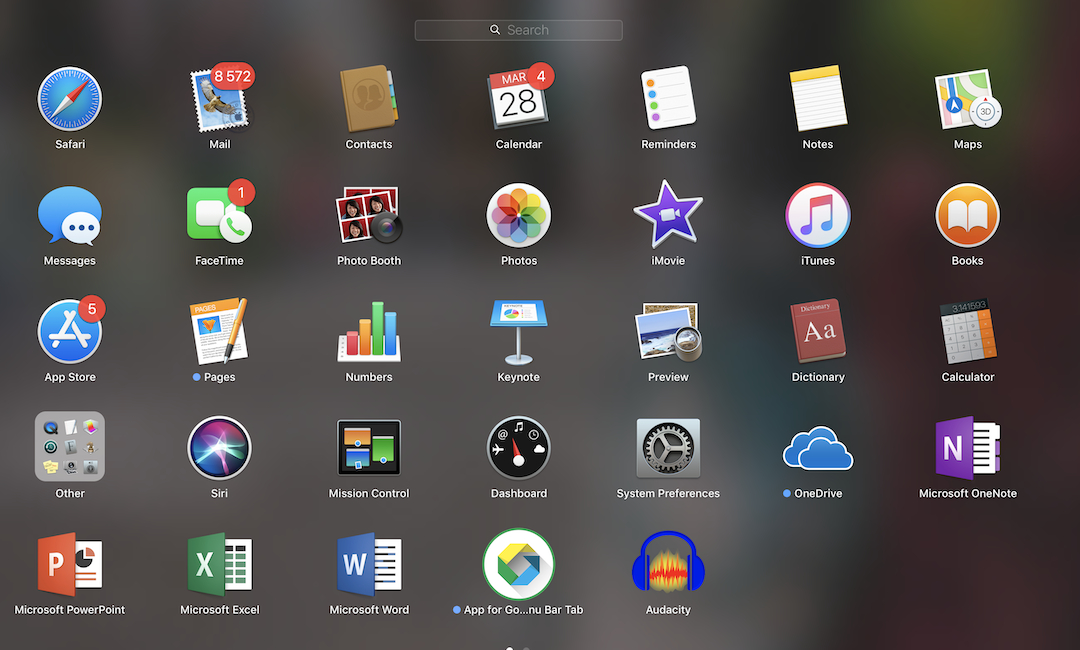
Subscription models, advertising, and privacy
What does the digital future hold?! The digital world around us is changing, quite rapidly I might add. Here are a few dates to give you a bit of context.
- Apple was founded in 1976
- Amazon started in 1994
- Google was founded in 1998
- Alibaba was founded in 1999
- The first iPod was launched in 2001
- Tesla was founded in 2003
- Facebook was founded in 2004
- Twitter was founded in 2006
- The first iPhone was sold in 2007
- Instagram replaced the Kodak camera in 2010
- Snapchat launched in 2011
- WeChat was launched in 2011
- TikTok was founded in 2016 and in 2017 it launched in markets outside China
A few of the big tech and IT companies have been in the headlines over the last couple of months, sharing updates with the world and hosting their annual developer conferences. The focuses centred around data, their latest updates and how they were giving more control back to the user. Well that’s at least how they were portrayed, but were Google and Facebook’s changes really in our best interest or were they strategic moves a chess board?
It felt like a good time to write down some thoughts around this topic with Apple just having announce the end of iTunes and a new Mac Pro that will set you back a cool $6000… yes that number has three zeros. Some may argue that it’s simple outrageous to pay that for a computer, but the Apple luxury is targeted at a specific audience.
Technology plays a vital role in my life currently. The internet is my library and offers access to information at the click of a button. Being a digital thinker, I also spend a lot of time testing things on different social media platforms, listening to podcasts or reading about the latest tech insights from different people around the globe. It’s an amazing opportunity that we have to learn from others and their experiences/lessons. In short, it’s hard to imagine what life would be like without all this information at our finger tips… and yet 20 years ago the majority of the latest tech developments didn’t exist.
The amount spent on digital media surpassed television ads in 2017, and globally this year the spend is anticipated to be over $333 billion. It took me a while to comprehend that figure, but when you unpack some of the bigger corporate marketing budgets around the world you realise that it is possible. You also just have to search for the number of active social media users to realise that we spend a huge amount of time on digital platforms.
It’s to be expected that digital platforms want more of our focused attention, less switching between apps and more time to present ‘relevant’ content to us. Advertising is a major revenue generator for these platforms – 98% of Facebook’s revenue for 2018 was the advertising space that it offered. This got me thinking about the changes that Facebook announced at their F8 conference and the reasons Zuckerberg gave for the changes. Do they really want to give us more privacy or do they want an interoperable platform where they will have control over all the data? I learn towards the later and this is before we even discuss the Face-coin and the blockchain payments that some people expected Facebook to announce this year.
Google also opened their developer and marketing conferences with points around data privacy. One may argue that Google knows more of our darkest secrets and so we should be more weary of the data they have on us.
With advertising playing a massive role in both Facebook and Google’s revenue streams, it’s been interesting to study the Apple model and their approach to privacy. Apple have stood their ground when asked to break their encryption on user data, even the FBI couldn’t force them to open the back door. “iCloud secures your information by encrypting it when it’s in transit, storing it in iCloud in an encrypted format, and using secure tokens for authentication.” Apple have also not wavered about their systems being purely for their users, offering a premium service… it’s part of the reason behind their luxury brand.
The future of the subscription model offers an exciting topic for debate and I look forward to unpacking this further in the next few weeks. Advertising and disruptions from ads have created an opportunity for some digital platforms to offer a paid subscription where you won’t be bombarded by someone trying to sell you car insurance or your next holiday. This development raises two points for me. Firstly, we need platforms to have tighter regulations on the ads they show and secondly platforms need to listen to user feedback. The loss of the audience who are able to purchase a subscription, is also something that advertisers should be cognisant of and understand how this may impact their target market.
Voice is going to play a massive role in our future. I won’t go into detail in this blog, but I will share some thoughts on this soon. Voice searches are not far off and marketers will do well to stay ahead of the game.
As you can probably gauge, I am a data and digital nerd. The space fascinates me. While I am cautious around the use of data and sceptical to a certain degree around who uses it. Data offers us the ability to better service customers if used correctly, machine learning means we can process massive data sets and generate results with a far greater speed than humans… which ultimately can lead to better service. This doesn’t mean that we shouldn’t check ourselves though. I strongly believe that we need to educate ourselves on data protection, privacy and just how digital platforms are using our data. Don’t be guided by everything you read or hear, investigate things for yourself because data is going to play an increasing important role in our lives.






